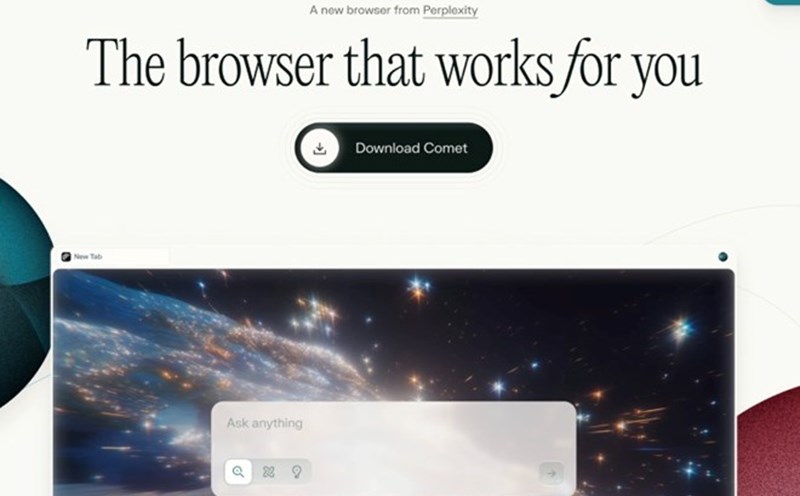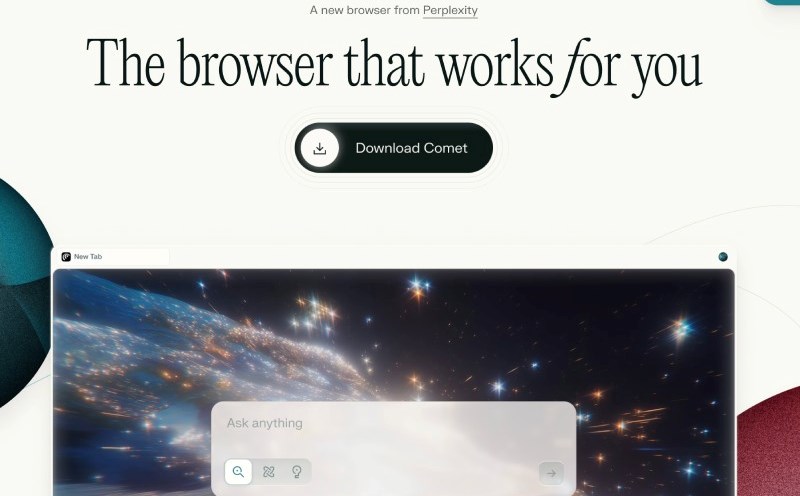Aravind Srinivas, founder and CEO of Perplexity, said in an interview with CNBC that Comet has the ability to automate a wide range of office tasks, from research, information synthesis to content drafting.
Instead of adding one person to the group, you just need to use Comet to support the entire work youre doing, Mr. Srinivas said.
Launched in July, Comet was previously limited to users who registered for Perplexity Max.
This is a browser based on a large language model (LLM) with an integrated AI assistant capable of self-browsing the web, collecting and summarizing information.
Users can ask Comet to describe the image, create YouTube video summarization, or synthesize content from open tabs.
Srinivas calls Comet a real personal assistant, which can help increase productivity by the equivalent of 10,000 USD per year for an individual.
He estimates that if the productivity of digital knowledge increases by 20%, it could contribute up to 5 trillion USD to global GDP.
Perplexity's CEO's comments come amid fierce debate in the technology industry over the future of AI-powered jobs.
Dario Amodei, CEO of Anthropic, warned that AI could make 50% of low-end office jobs disappear in the next 5 years, while Demis Hassabis of Google DeepMind believes AI will open up a prosperous future.
Bill Gates and Jensen Huang (Nvidia) also believe that AI, even though it replaces some jobs, will simultaneously create many new opportunities.
Comet is now available for Windows and Mac, but some features such as Email Assistant or Bloading Assistant are only available to paying users.
Srinivas affirmed that the company strictly complies with SOC 2 security standards to ensure the safety of user data.
In addition to Perplexity, many other companies are also stepping up the development of AI browsers.
Browser Company introduced Dia, OpenAI launched Operator, and Google integrated Gemini chatbot directly into Chrome.











